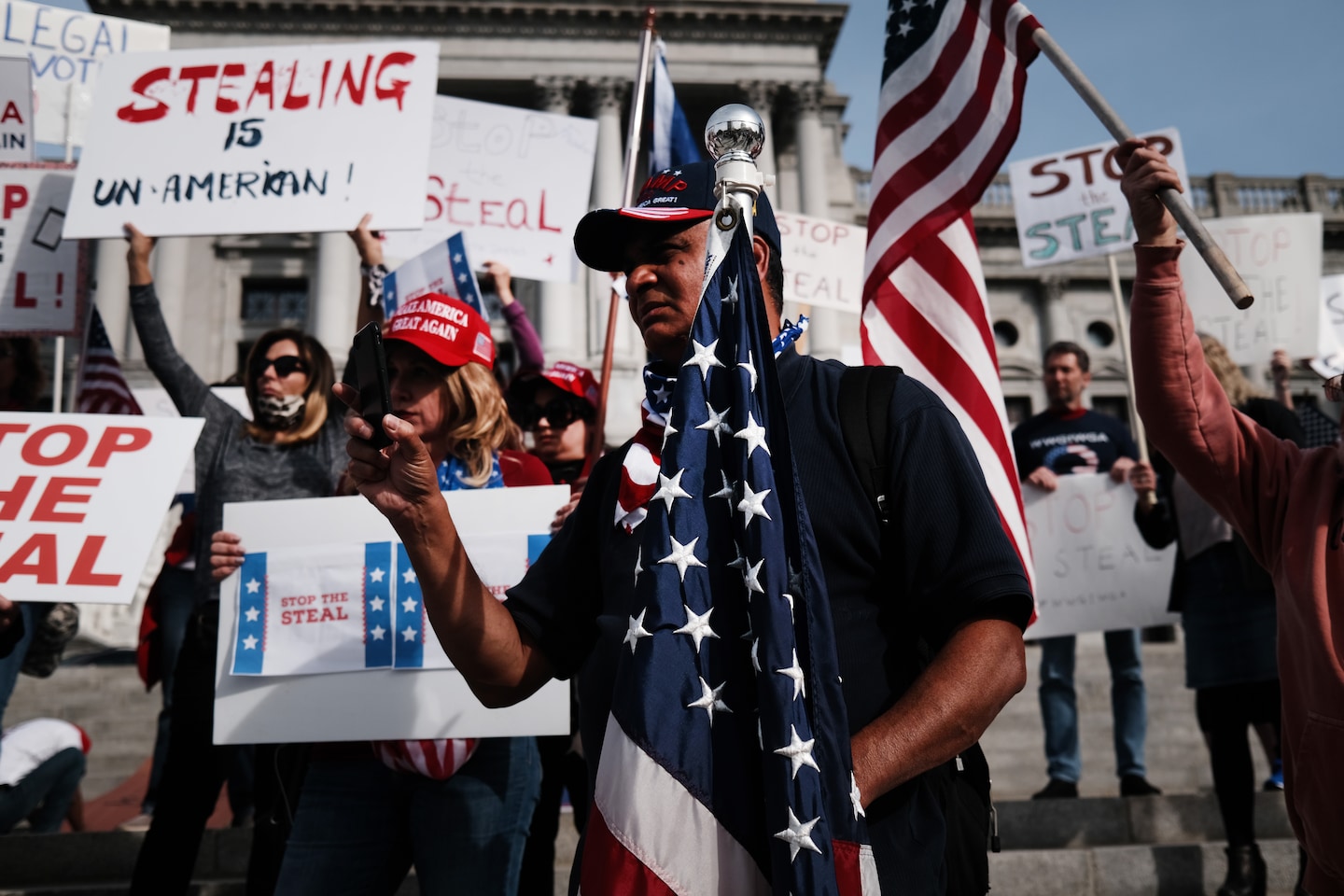Analysis | One flaw of a push to uproot voter fraud is there’s not much to uproot

One thing that struck me at the time was the caveat that Trump’s supporters applied to the upcoming contest. Trump would win, they said — unless there was rampant fraud. The Democrats would try to steal the election, I was told, and the Trump supporters were worried about it.
It’s not new that people in Pennsylvania would fret about purported voter fraud, certainly, but the uniformity of that response was not surprising at that point simply because of how often Trump himself had elevated it. The election would be stolen, he said, over and over — and, when he lost, it said it had been.
But he and his team had tried to do something about it. The expiration of a consent degree that barred the Republican Party from monitoring election sites (after an early 1980s effort by the party to intimidate Black voters) led Trump and his campaign to encourage people to sign up to monitor polling places near them to prevent fraud.
In Scranton, I ran into a group of people who told me they planned to do exactly that. One was Larry Stange, then 61. He didn’t vote in 2016 but was happy enough with Trump’s presidency to prioritize both voting and trying to uproot fraud in 2020.
Often, people describe plans to volunteer that never pan out. But Stange was a man of his word: On Tuesday, he showed up at a polling place near Scranton and kept an eye out for fraud. He later spoke with a reporter from the Scranton Times-Tribune about the experience.
“As of 7 p.m., the Moscow Republican hadn’t observed anything he considered suspicious or improper while voters in Scranton Ward 3 Precinct 1 cast their ballots,” reporter Jeff Horvath wrote of Stange. He quoted Stange praising the election workers and the functioning of the polling site.
In other words, no fraud was found.
There are a lot of reasons for that, of course. The biggest one is that in-person voter fraud is rare to the point of essential nonexistence. Trying to keep an eye out for fraud at a polling place is a bit like trying to keep an eye out for alien abductions. Studies have shown that absentee ballot fraud is more common — but still very, very rare. Being stationed at a polling place on Election Day, though, Stange wasn’t going to see any sort of fraud from mail-in voting anyway.
While I certainly can’t say that I know with certainty that Stange’s evaluation of the likelihood of fraud was sincere, it certainly appeared to be. The president he strongly supported said he worried about the threat of fraud and called on people to help combat it, and Stange enlisted in the fight. Then, eyes open on Election Day, he told a reporter that he didn’t actually see any fraud.
Allies of Trump’s have continued to push for election monitoring efforts in the wake of the 2020 vote. The New York Times reported over the weekend that a lawyer named Cleta Mitchell was pushing for a national effort to inspect elections broadly, from polling places to election staff. Mitchell was very close to Trump’s efforts to overturn his 2020 loss, including participating in his infamous call in early January 2021 during which he encouraged Georgia’s secretary of state to “find” just enough votes to give him the state.
According to the Times, the program Mitchell is advocating would go further than simply monitoring polling places. In Virginia last year, activists in heavily Democratic counties pressed election officials on the minutiae of the process, an effort Mitchell has championed. While it strained resources and frustrated elections officials, there is no indication that it actually uprooted any fraud.
As a Republican official told the paper, the effort would probably “come down to whether [volunteers] are truly interested in knowing the truth about elections or they’re interested in propagating propaganda.” This is important: For how many election cycles will volunteers be willing to spend hours trying to spot fraud that never turns up? There is a legitimate concern about intimidating voters and aggravating officials, certainly, but organizing people to commit volunteer time is far harder than it might seem. That’s particularly true when people think their time isn’t being well used.
It’s useful to step back and recognize that I’m simply plucking a silver lining out of this massive storm cloud. That huge energy is focused on doing as much as possible to uncover nonexistent fraud is a problem broadly in that it undermines confidence in elections for no good reason and is a problem specifically because it encumbers the already difficult job of elections administrators. Even if good-faith actors are interested in ensuring no one cheats — having been unfortunately convinced that lots of people cheat — there are downsides. There are also certainly people who approach the issue from a position of simply hoping to make it more likely that their side will win.
Out of curiosity, I looked up Stange’s Facebook page to see how he responded to Trump’s (and Mitchell’s) documented efforts to steal the 2020 election by overturning the results in swing states. On Nov. 30, Stange declared that the 2020 contest was “the least transparent election in US History, the biggest cover up ever.” He cited debunked accusations and insisted Republican poll watchers in such places as Philadelphia were “intimidated” and “harassed.”
Not in Scranton’s Ward 3, Precinct 1, however, where Stange was stationed and saw nothing untoward. Like crime and like inept members of Congress, the bad things always seem to be occurring somewhere else. But rest assured that they’re happening.


